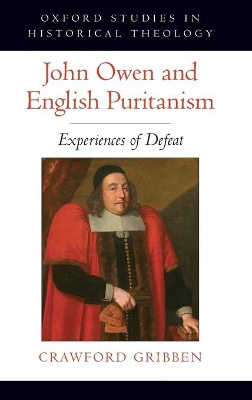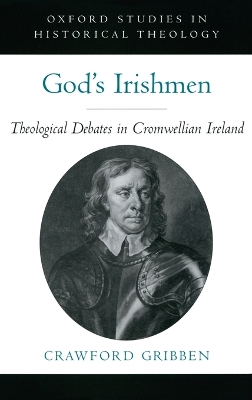Oxford Studies in Historical Theology
2 total works
John Owen was a leading theologian in 17th-century England. As vice-chancellor of Oxford University, he was a man of immense intellectual and cultural significance. Through his association with Oliver Cromwell in particular, he exercised considerable influence on central government, and became the premier religious statesman of the Interregnum. The restoration of the monarchy pushed Owen into dissent, criminalizing his religious practice and inspiring his writings in
defense of high Calvinism and religious toleration. But Owen transcended his many experiences of defeat, and his claims to quietism were frequently undermined by rumors of his involvement in anti-government conspiracies.
Crawford Gribben's biography documents Owen's interactions with the intellectual and print cultures of his social, political and religious environments; its narrative is structured around Owen's own publications. In contrast to the current scholarly consensus, this book emphasizes Owen's importance as a controversial theologian deeply involved with his social and political environment. Far from personifying the Reformed tradition, he helped to undermine it, offering an individualist account of
Christian faith which downplayed the significance of the Church's means of grace. His work contributed to the formation of the new religious movement known as evangelicalism, where his influence still can be seen today.
defense of high Calvinism and religious toleration. But Owen transcended his many experiences of defeat, and his claims to quietism were frequently undermined by rumors of his involvement in anti-government conspiracies.
Crawford Gribben's biography documents Owen's interactions with the intellectual and print cultures of his social, political and religious environments; its narrative is structured around Owen's own publications. In contrast to the current scholarly consensus, this book emphasizes Owen's importance as a controversial theologian deeply involved with his social and political environment. Far from personifying the Reformed tradition, he helped to undermine it, offering an individualist account of
Christian faith which downplayed the significance of the Church's means of grace. His work contributed to the formation of the new religious movement known as evangelicalism, where his influence still can be seen today.
God's Irishmen describes the theological debates that tore the Cromwellian movement apart and provided for its eventual failure. Providing a close and informed analysis of the relatively few texts that survive from the period, Crawford Gribben not only dissects the contentious theological issues but reflects on larger questions about the characteristics of the Protestant churches in Cromwellian Ireland.

